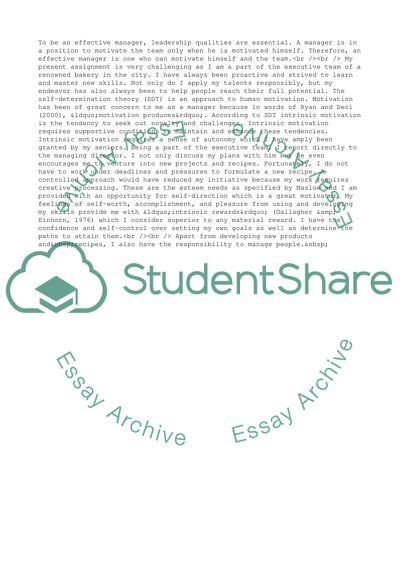Cite this document
(Management Theory and Motivation Assignment Example | Topics and Well Written Essays - 2000 words, n.d.)
Management Theory and Motivation Assignment Example | Topics and Well Written Essays - 2000 words. Retrieved from https://studentshare.org/management/1709047-motivating-yourself-and-your-team-is-important-to-your-effectiveness-as-a-manager
Management Theory and Motivation Assignment Example | Topics and Well Written Essays - 2000 words. Retrieved from https://studentshare.org/management/1709047-motivating-yourself-and-your-team-is-important-to-your-effectiveness-as-a-manager
(Management Theory and Motivation Assignment Example | Topics and Well Written Essays - 2000 Words)
Management Theory and Motivation Assignment Example | Topics and Well Written Essays - 2000 Words. https://studentshare.org/management/1709047-motivating-yourself-and-your-team-is-important-to-your-effectiveness-as-a-manager.
Management Theory and Motivation Assignment Example | Topics and Well Written Essays - 2000 Words. https://studentshare.org/management/1709047-motivating-yourself-and-your-team-is-important-to-your-effectiveness-as-a-manager.
“Management Theory and Motivation Assignment Example | Topics and Well Written Essays - 2000 Words”. https://studentshare.org/management/1709047-motivating-yourself-and-your-team-is-important-to-your-effectiveness-as-a-manager.


